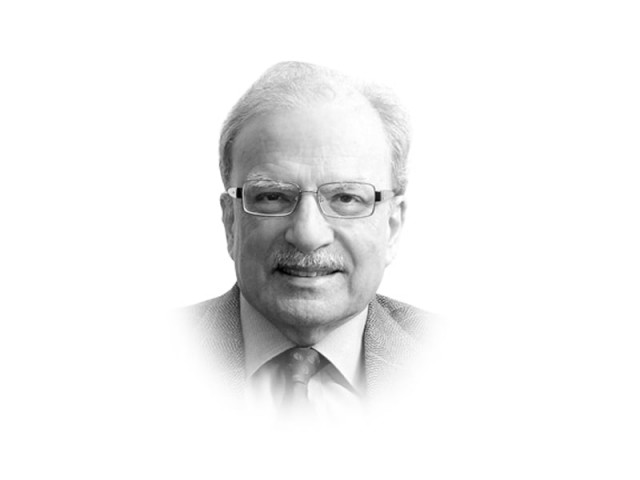Finding solutions to Pakistan’s economic problems
Expanding the tax base will require documenting the economy that remains outside the government’s reach.

The writer is a former caretaker finance minister and served as vice-president at the World Bank
The government took some steps to deal with some of the long-enduring economic issues. It used government finance to pay off a good part of the circular debt. With the independent power producers having been paid the amounts they were owed, they should bring back the capacity that was not being used for generating electricity. However, by picking up the debt burden, the government has added to the fiscal deficit, increasing it to an unsustainable level but this is likely to be a temporary rise. Finance Minister Ishaq Dar has committed himself to reducing the fiscal deficit to 4.5 per cent of GDP over a three-year period. A sharp reduction in the fiscal deficit will require several actions. Political capital will have to be used by the new administration to collect more taxes from those who have managed to escape for years the tax man or have grossly underpaid the amounts they owe the government. Expanding the tax base will require documenting the economy that remains outside the government’s reach.
Controlling the runaway fiscal deficit will also require action on the energy front. At a meeting of the Council of Common Interests (CCI), it was agreed to reform the structure of electricity tariffs. The new system of tariffs will increase the rates for all consumers excepting those who consume less than 200 units a month. There will also be some differentiation in the amounts paid by different types of consumers. Those contributing to economic output will pay a bit less than those using power purely for consumption. After the CCI meeting, the prime minister announced that his government was preparing a long-term plan aimed at adding 50,000MW to the generation capacity. This will be done by using mostly indigenous resources — hydro, coal, wind and the sun.
Bringing the budget under control will also need a sharp reduction in large deficits being incurred by the public sector enterprise (PSEs). These entities, under the Zardari regime, had performed at levels of unprecedented inefficiency and had employed tens of thousands of party workers who did little productive work. So far, the government has not indicated how it will manage the PSEs other than announcing that all appointments to senior positions will be done in a transparent way.
The government also needs to deal with the relations that Islamabad has with the provinces. There are provisions in the 1973 Constitution that allow the provinces the first use of natural gas extracted from the deposits located in their territories. This could disrupt the economy. The extensive pipeline network for distribution was built under the assumption that natural gas was a national rather than a provincial resource. Also, the Eighteenth Amendment has given many new responsibilities to the provinces, which can only be carried out if they have adequate expertise and resources. These will have to be provided. In sum, there is a large unfinished agenda to be dealt with. The government has made only a small start.
Published in The Express Tribune, August 12th, 2013.
Like Opinion & Editorial on Facebook, follow @ETOpEd on Twitter to receive all updates on all our daily pieces.















COMMENTS
Comments are moderated and generally will be posted if they are on-topic and not abusive.
For more information, please see our Comments FAQ